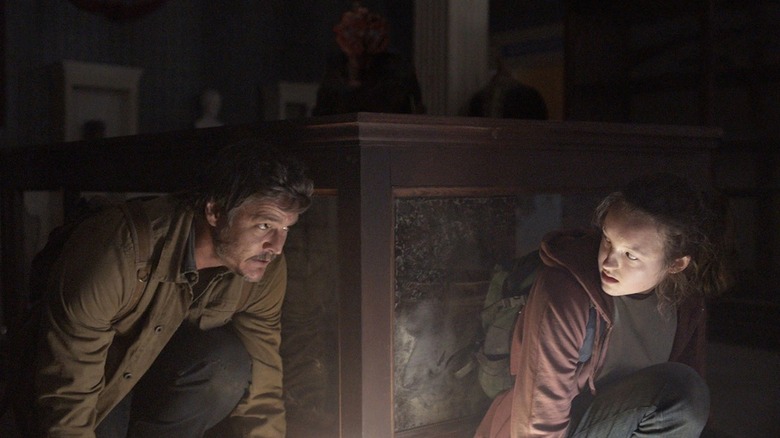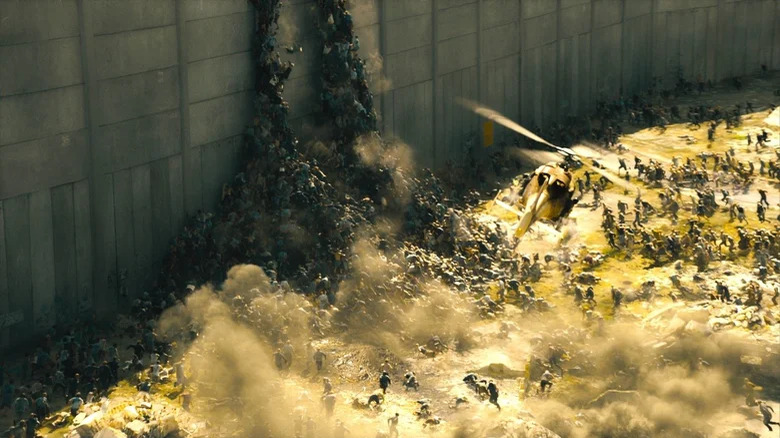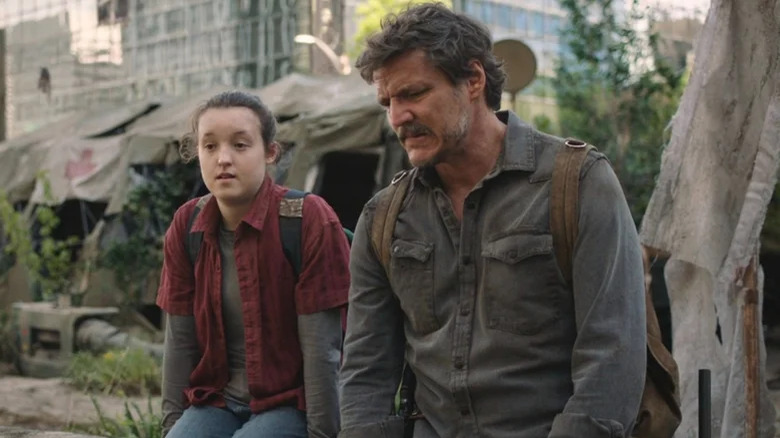David Fincher Is Glad World War Z 2 Was Cancelled (Because The Last Of Us Is Better)
After "The Last of Us" video game became one of the most acclaimed games of the past decade and was lauded as a game-changer, this year saw its live-action TV adaptation heralded as one of the best video game adaptations, ever. Both are not only fantastic horror stories but gripping dramas with a focus on characters.
The "Last of Us" franchise has become such a game-changing addition to the zombie genre that instead of spawning cheap competitors that cash in on its success, it is actually scaring the competition away. At least one big zombie movie is reportedly no longer happening, in part due to "The Last of Us." Speaking with GQ for the release of "The Killer," David Fincher addressed his long-awaited sequel to "World War Z."
"It was a little like 'The Last of Us,'" Fincher said about his ideas for the canned sequel. "I'm glad that we didn't do what we were doing, because 'The Last of Us' has a lot more real estate to explore the same stuff."
Though details on Fincher's take on "World War Z" are extremely scarce, he did tell GQ what his title sequence would have looked like. "We were going to use the little parasite ... they used it in their title sequence, and in that wonderful opening with the Dick Cavett, David Frost-style talk show."
If you need a reminder, "World War Z" came out in 2013 and starred Brad Pitt as a United Nations investigator traveling the globe to look for a solution to the zombie plague that is ravaging the world. The film ended with Pitt's character finding a possible cure that would let people go unnoticed by the undead.
What World War Z 2 could have looked like
Originally, "World War Z 2" was going to be directed by J.A. Bayona, who directed "Jurassic World: Fallen Kingdom." When Bayona departed the project in 2017, Fincher was signed on to take over. Unfortunately, Fincher departed the project in 2019 over budgetary concerns, and he moved on to make "Mank," instead.
In a 2019 interview with Movieweb, writer Matthew Michael Carnahan said he did a rewrite of the script for the "World War Z" sequel. His idea involved "the part in the book where they're taking back the United States," with a proposed third film properly adapting the "central spine of the book where this man is interviewing people about what happened."
In Max Brooks' "World War Z: An Oral History of the Zombie War" book, the United States starts out dismissing the zombie outbreak. By the time the government starts taking it seriously, their overconfidence in their technology and military proves to be their downfall. A high-profile battle in Yonkers, New York ends with the military getting annihilated by the zombie hordes, and the government escaping and relocating to Honolulu, Hawaii.
A sequel that looked at this tragedy actually sounds rather cool and unique. The problem is that Fincher's comments indicate that his film would have been closer to the parts of the first "World War Z" movie that didn't work, the combination of a larger worldwide story with a personal, and bland, story of survival. Worse yet, the comparison to "The Last of Us" shows both a misunderstanding of what made the "World War Z" novel special, and what makes "The Last of Us" so beloved.
Different zombie outbreaks for different folks
What made Brooks '"World War Z" book great was that it focused on the big picture. The novel is a recollection of fictional interviews with survivors from around the world, telling the story of how different countries handled the zombie apocalypse. Through this, we learn how society changed, how politics and religion evolved, and how the planet itself changed due to the zombie outbreak. Like Isaac Asimov's "Foundation," individual stories don't matter, because what is important is how, for example, Russia became a theocracy and had its army decimated to restore order after a wave of rebellions.
"The Last of Us" could not be more different than that. Both the game and the show are so focused on interpersonal connections that the zombies often feel like an afterthought. Sure, the zombies are cool, but what matters most is the relationship between Joel and Ellie. Their story could be set against the backdrop of any other kind of disaster and it would still work because we are invested in their journeys and trauma. Sure, the TV show in particular occasionally gave us glimpses of the larger world, like in a flashback to how the virus first spread in Indonesia, but the difference is that these are still focused on the individuals rather than the institutions. We don't see how the government of Indonesia responds to the crisis, but we do see a scientist crying while suggesting to a military officer they bomb Jakarta rather than see the virus spread.
"The Last of Us" could work great as a movie — just look at "28 Days Later," or "The Road" — but not when set in the world of "World War Z" because they are incompatible. A David Fincher zombie story still sounds cool, just not like this.


